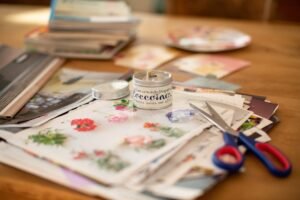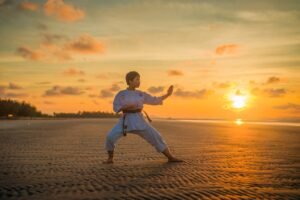Comprehensive Guide of Playing Piano
Overview
Playing the piano is a highly rewarding and versatile hobby that combines musical expression with cognitive development. It involves using a keyboard instrument to produce sound by striking keys that trigger hammers to hit strings. This hobby allows individuals to explore a wide range of musical genres, from classical and jazz to pop and rock. Playing the piano can enhance creativity, improve memory, and develop fine motor skills. It serves as a form of emotional expression and can be a source of relaxation and enjoyment. Many people find joy in learning new pieces, improvising, and even composing their own music, making piano playing a fulfilling and enriching pastime.
History
The piano has a rich history that dates back to the early 18th century when it was invented by Bartolomeo Cristofori in Italy around 1700. Originally called the ‘gravicembalo col piano e forte’ (harpsichord with soft and loud), the instrument was designed to allow for dynamic expression through varying touch. The piano evolved through various forms, including the fortepiano and the modern grand and upright pianos we know today. Throughout the centuries, composers like Mozart, Beethoven, and Chopin have contributed significantly to piano music, creating a vast repertoire that continues to inspire pianists. The development of the piano has also been influenced by advancements in technology, such as the introduction of the iron frame and felt hammers in the 19th century, which improved the instrument’s durability and sound quality.
Popularity and Demographics
Playing the piano is a popular hobby enjoyed by millions of people worldwide, transcending age, gender, and cultural boundaries. According to various surveys, approximately 20% of American households have a piano, and many children begin piano lessons at a young age. The hobby is particularly popular among individuals aged 6 to 18, as it is often included in school music programs. Additionally, adult learners are increasingly taking up piano playing, motivated by a desire for personal fulfillment and stress relief. The rise of online learning platforms and mobile apps has made piano education more accessible, allowing people to learn at their own pace and from the comfort of their homes. Social media has also played a significant role in the hobby’s popularity, with platforms like YouTube and TikTok showcasing talented pianists and inspiring others to take up the instrument.
Sponsored Hobbyists and Vendors
Become a Sponsor!
Affiliate Disclaimer: Throughout some sections below, Hobby Spotlight may suggest some tools, equipment or material using affiliate links. By purchasing any of those items, Hobby Spotlight may earn a small commission. This helps fund our website, content and services without directly charging our users.
Getting Started
Essential Piano Tools and Equipment:
Beginner
- Keyboard Piano: A basic electronic keyboard suitable for beginners.
- Piano Bench: A comfortable bench for sitting while playing the piano.
- Piano Method Book: A beginner’s book for learning piano techniques and songs.
- Metronome: A device to help keep time while practicing.
- Piano Tuner App: An app to help tune your piano accurately.
Intermediate
- Digital Piano: An advanced electronic piano with weighted keys for a realistic feel.
- Sheet Music Stand: A stand to hold sheet music while playing.
- Piano Pedal: A sustain pedal for enhancing piano performance.
- Piano Learning Software: Software that provides interactive lessons and feedback.
- Piano Cover: A cover to protect the piano from dust and damage.
Basic Requirements and Initial Setup:
- Piano or Keyboard: A quality instrument is essential. Beginners can start with a digital keyboard, while more serious players may invest in an acoustic piano.
- Sheet Music and Learning Materials: Access to beginner-friendly sheet music and instructional books or online resources will help in learning and practicing.
- Practice Space: A quiet, comfortable area with good lighting is important for focused practice sessions, allowing for better concentration and productivity.
Fundamental Skills to Learn:
- Reading Music: Understanding musical notation, including notes, rhythms, and dynamics, is crucial for playing pieces accurately.
- Hand Coordination: Developing the ability to use both hands independently while maintaining rhythm and timing is essential.
- Finger Technique: Proper finger placement and movement help in playing smoothly and efficiently, reducing strain and improving speed.
- Scales and Chords: Mastering scales and chords forms the foundation for improvisation and playing various musical styles.
- Listening Skills: Developing aural skills to recognize pitches, intervals, and harmonies enhances overall musicality and performance.
Sub-Hobby/Common Activities:
- Classical Piano: Focusing on the works of composers like Bach, Beethoven, and Chopin, emphasizing technique and expression.
- Jazz Piano: Exploring improvisation, complex chords, and syncopated rhythms, often incorporating personal style.
- Pop and Rock Piano: Playing contemporary songs, often focusing on chord progressions and catchy melodies.
- Accompaniment: Learning to accompany singers or other instruments, requiring adaptability and strong rhythmic skills.
- Composition and Songwriting: Creating original music, which involves understanding structure, harmony, and melody.
Terminology:
- Clef: A symbol at the beginning of the staff indicating the pitch of the notes, such as treble or bass clef.
- Scale: A sequence of notes in ascending or descending order, forming the basis for melodies and harmonies.
- Chord: A combination of three or more notes played simultaneously, forming the harmonic foundation of music.
- Arpeggio: Playing the notes of a chord in succession rather than simultaneously, creating a flowing sound.
- Dynamics: The variations in loudness and softness in music, indicated by symbols like ‘p’ for piano and ‘f’ for forte.
- Tempo: The speed at which a piece of music is played, often indicated by beats per minute (BPM).
- Ritardando: A gradual decrease in tempo, often used for expressive effect.
- Legato: A style of playing where notes are connected smoothly, without noticeable breaks.
- Staccato: A style of playing where notes are played sharply and detached from each other.
- Improvisation: The act of creating music spontaneously, often used in jazz and contemporary styles.
Advanced Topics and Specializations
Advanced Piano Equipment:
- Digital Piano with Weighted Keys: A high-quality digital piano that simulates the feel of an acoustic piano with weighted keys and multiple sound options.
- Piano Bench with Adjustable Height: A sturdy and comfortable piano bench that allows for height adjustment to ensure proper posture while playing.
- Piano Pedal System: An advanced pedal system that includes a sustain pedal, soft pedal, and sostenuto pedal for enhanced playing techniques.
- Sheet Music Stand with Adjustable Height: A durable and adjustable sheet music stand that holds music sheets securely at the desired height and angle.
- Piano Tuner App or Device: A professional-grade tuning app or device that helps maintain the piano’s pitch and sound quality.
Advanced Projects and Achievements:
- Concerto Performance: Mastering and performing a full piano concerto with an orchestra, showcasing technical skill and musical interpretation.
- Composition of Original Pieces: Creating and arranging original compositions, demonstrating creativity and understanding of music theory.
- Participation in Competitions: Competing in local, national, or international piano competitions, achieving recognition and awards for performance excellence.
Advanced Techniques and Methods:
- Advanced Finger Techniques: Utilizing techniques such as finger independence and agility exercises to enhance speed and precision in playing.
- Pedaling Techniques: Mastering the use of the sustain and soft pedals to create dynamic contrasts and enhance musical expression.
- Improvisation Skills: Developing the ability to spontaneously create music, incorporating various styles and genres into performances.
Specializations and Niche Areas:
- Classical Piano: Focusing on the repertoire of classical composers, including works from the Baroque, Romantic, and Contemporary periods.
- Jazz Piano: Exploring jazz improvisation, chord progressions, and unique rhythmic patterns to create spontaneous musical expressions.
- Film Scoring: Composing and arranging music for film, understanding the relationship between visuals and sound.
- Accompaniment Skills: Specializing in accompanying vocalists or instrumentalists, enhancing their performances through supportive playing.
- Music Education: Teaching piano to students of various ages and skill levels, focusing on technique, theory, and performance.
Future Trends and Innovations:
- Increased integration of technology in piano learning, such as apps that provide real-time feedback on performance.
- Growing popularity of online piano lessons and virtual masterclasses, making education more accessible.
- Development of smart pianos that connect to apps for interactive learning experiences.
- Emphasis on cross-genre collaborations, blending classical piano with contemporary styles like pop and electronic music.
- Focus on mental health and wellness through music, promoting piano playing as a therapeutic activity.
Technology Integrations:
- Digital Sheet Music: Utilizing apps and software to access and annotate sheet music digitally, enhancing practice efficiency.
- Online Learning Platforms: Websites and applications that offer structured piano courses, tutorials, and community support.
- Recording Software: Using digital audio workstations (DAWs) to record and produce piano performances, allowing for creative exploration.
- Interactive Learning Tools: Incorporating gamified learning experiences that make practicing more engaging and fun.
- Smart Keyboards: Keyboards equipped with features like light-up keys and built-in lessons to assist beginners in learning.
Further Learning and Resources
Books:
- Piano for Dummies by John Thompson: An easy-to-follow guide that introduces the basics of piano playing, including reading music and simple songs.
- Alfred’s Basic Piano Library: Lesson Book Level 1A by Willard A. Palmer: A comprehensive lesson book designed for young beginners, featuring engaging exercises and familiar songs.
- The Complete Piano Player by Pam Wedgwood: A beginner-friendly book that teaches piano through popular songs, making learning enjoyable and accessible.
- The Art of Piano Playing by Heinrich Neuhaus: A classic text that delves into the philosophy and technique of piano playing, ideal for advanced pianists seeking to refine their skills.
- Piano Technique by Walter Gieseking: An in-depth exploration of piano technique, focusing on finger exercises and advanced playing methods for serious pianists.
- The Well-Tempered Clavier by Johann Sebastian Bach (edited by various authors): A cornerstone of piano repertoire, this collection of preludes and fugues challenges advanced players and enhances their musicality.
Websites:
- Piano Street, https://www.pianostreet.com – A comprehensive resource for piano players, offering sheet music, forums, and articles on piano techniques.
- MusicNotes, https://www.musicnotes.com – An extensive library of digital sheet music for various genres, allowing users to purchase and download scores.
- Simply Piano, https://www.joytunes.com/simply-piano – An interactive app that teaches piano through popular songs, suitable for beginners and advanced players alike.
- Piano Marvel, https://www.pianomarvel.com – An online piano learning platform that offers structured lessons and progress tracking for players of all levels.
- YouTube Piano Tutorials, https://www.youtube.com/results?search_query=piano+tutorials – A vast collection of free video tutorials covering various techniques, songs, and styles for piano learners.
Courses:
- Piano for All, https://www.pianoforall.com – An online course designed for beginners, focusing on practical piano skills and popular songs.
- Coursera – Piano Fundamentals, https://www.coursera.org/learn/piano-fundamentals – A beginner-friendly course that covers the basics of piano playing and music theory.
- Udemy – Complete Piano Course, https://www.udemy.com/course/complete-piano-course/ – A comprehensive course for all levels, covering techniques, theory, and a variety of musical styles.
- MasterClass – Herbie Hancock Teaches Jazz, https://www.masterclass.com/classes/herbie-hancock-teaches-jazz – An advanced course focusing on jazz piano techniques taught by a legendary musician.
- Berklee Online – Piano Techniques, https://online.berklee.edu/courses/piano-techniques – An advanced course that explores various piano techniques and styles, suitable for intermediate to advanced players.
Content Creators and Community
Content Creators:
- PianoKeyz (YouTube): Offers a variety of piano tutorials ranging from beginner to advanced levels, focusing on popular songs and techniques.
- Pianote (YouTube): A comprehensive piano learning platform that provides lessons, tips, and practice strategies for all skill levels.
- Josh Winkler (YouTube): Known for his engaging piano tutorials and music theory lessons, helping viewers understand the fundamentals of playing piano.
- Mike’s Piano (Instagram): Shares short clips of piano performances, tutorials, and tips for aspiring pianists.
- The Piano Keys (YouTube): Focuses on teaching popular songs through easy-to-follow tutorials, making piano accessible to everyone.
- Piano Video Lessons (YouTube): Provides a wide range of piano lessons, from classical pieces to contemporary hits, catering to various musical tastes.
- Pianist Magazine (Website): A resource for piano enthusiasts featuring tutorials, reviews, and articles on piano playing and music theory.
Online Forums and Social Media Groups:
- Reddit – /r/piano: A community for piano players to share tips, ask questions, and discuss techniques.
- Facebook Piano Groups: Various groups where members share their progress, ask for advice, and post performances.
- Piano World Forums: An online forum dedicated to piano enthusiasts discussing everything from techniques to piano maintenance.
- Instagram Hashtags (#pianomusic, #pianoplayer): Follow these hashtags to discover performances, tutorials, and inspiration from fellow pianists.
- Pinterest Boards: Explore boards dedicated to piano tutorials, sheet music, and practice tips curated by passionate players.
Local Clubs and Organizations:
- Community Music Schools: Many local music schools offer piano classes and group lessons for all ages and skill levels.
- Piano Teachers Association: Local chapters often host events, workshops, and competitions for piano students and teachers.
- Music Meetup Groups: Platforms like Meetup.com host local gatherings for piano enthusiasts to play together and share experiences.
- Local Conservatories: Often provide piano courses and performance opportunities for aspiring musicians.
- Chamber Music Societies: Groups that may include piano players and offer collaborative performance opportunities.
Events, Meetups, and Conventions:
- Piano Competitions: Various local and national competitions encourage pianists to showcase their skills and gain performance experience.
- Music Festivals: Many festivals feature piano performances, workshops, and masterclasses with renowned pianists.
- Piano Workshops: Events hosted by music schools or organizations focusing on specific techniques or styles of piano playing.
- Annual Piano Conventions: Gatherings that include performances, workshops, and networking opportunities for piano enthusiasts.
- Recitals and Open Mic Nights: Local venues often host events where pianists can perform and connect with other musicians.
Associated Hobbies
- Music Theory: Understanding music theory enhances piano playing by providing insights into how music is structured, including scales, chords, and harmony, which can deepen appreciation and improve performance.
- Composing: Many pianists enjoy composing their own music, allowing for personal expression and creativity. This can involve writing original pieces or arranging existing songs for piano.
- Sheet Music Collection: Collecting sheet music can become a hobby in itself, with pianists seeking out rare or unique pieces, exploring different genres, and building a personal library of music.
- Music History: Exploring the history of music and famous composers can enrich a pianist’s understanding and appreciation of the pieces they play, as well as inspire their own musical journey.
- Performance: Many pianists enjoy performing, whether in formal concerts, casual gatherings, or online platforms. This can build confidence and provide a sense of community with other musicians.
- Improvisation: Developing improvisational skills allows pianists to create spontaneous music, enhancing creativity and adaptability while playing, and can be a fun way to explore new musical ideas.
- Collaborating with Other Musicians: Playing with other musicians, such as in duets or ensembles, can enhance the piano experience, fostering teamwork and expanding musical horizons.
- Piano Maintenance: Taking care of a piano, including tuning and cleaning, can become a rewarding hobby. Understanding how to maintain the instrument ensures it remains in optimal playing condition.
Cost and Budgeting
Initial Investment and Ongoing Costs:
- Initial Investment: The cost to start playing the piano can vary significantly based on the type of piano you choose. A basic digital piano can range from $300 to $800, while an acoustic piano can start at around $1,000 and go up to several thousand dollars for high-quality models. Additionally, you may want to invest in a bench, sheet music, and possibly a metronome, which can add another $100 to $300 to your initial costs.
- Ongoing Costs: Ongoing costs may include maintenance for acoustic pianos, which can require tuning and occasional repairs, typically costing around $100 to $200 per tuning. If you take lessons, expect to pay between $30 to $60 per hour, depending on the instructor’s experience and location. Sheet music and other learning materials can also add to your ongoing expenses, with prices varying widely.
Budget-Friendly Options:
- Used Instruments: Consider purchasing a second-hand piano or keyboard from local classifieds, online marketplaces, or music stores that sell used instruments. This can significantly reduce your initial investment.
- Digital Pianos: Opt for a digital piano instead of an acoustic one. They are often more affordable, require less maintenance, and can be used with headphones for quiet practice.
- Free Online Resources: Utilize free online tutorials, YouTube channels, and apps that offer piano lessons and sheet music to minimize costs associated with learning.
Where to Buy:
- Local Music Stores: These stores often have a selection of both new and used pianos and keyboards, and staff can provide valuable advice on choosing the right instrument.
- Online Retailers: Websites like Amazon, Sweetwater, and Guitar Center offer a wide range of pianos and keyboards, often with customer reviews to help you make an informed decision.
- Classified Ads: Check local classified ads, Facebook Marketplace, or Craigslist for individuals selling used pianos or keyboards at competitive prices.
Money Making
How to Turn the Hobby into a Profession or Side Hustle:
- Piano Teacher: Share your passion for music by offering piano lessons to students of all ages. You can teach in-person or online, creating a flexible schedule that suits your lifestyle. Develop a curriculum that caters to beginners, intermediate, and advanced players, and consider specializing in specific genres like classical, jazz, or pop.
- Session Musician: Use your piano skills to work as a session musician for recording artists, bands, or producers. This role involves playing piano on various tracks, contributing to albums, or performing live. Building a strong network in the music industry can help you secure gigs and establish a reputation.
- Music Composer or Arranger: If you have a knack for creating original music, consider composing for films, commercials, or video games. You can also arrange existing pieces for different ensembles or orchestras. This can be a fulfilling way to express your creativity while earning income from your compositions.
- Piano Performer: Take your skills to the stage by performing at events, weddings, or local venues. You can create a repertoire that showcases your style and engage with audiences through live performances. Consider building a brand around your performances, including a website and social media presence to attract more opportunities.
- Music Content Creator: Leverage platforms like YouTube, Instagram, or TikTok to share your piano playing, tutorials, and music-related content. By building a following, you can monetize your content through sponsorships, affiliate marketing, and ad revenue. This can also lead to opportunities for collaborations with other musicians and brands.
Benefits and Enjoyment
Physical, Mental, and Social Benefits:
- Physical Coordination: Playing the piano requires the use of both hands independently, which enhances fine motor skills and hand-eye coordination. This physical engagement can improve dexterity and overall motor function.
- Mental Stimulation: Learning to play the piano engages various areas of the brain, improving cognitive functions such as memory, attention, and problem-solving skills. It can also enhance creativity and critical thinking.
- Emotional Expression: Music is a powerful medium for expressing emotions. Playing the piano allows individuals to convey feelings and moods, providing an emotional outlet that can lead to improved mental health and well-being.
- Social Interaction: Piano playing can be a social activity, whether through group lessons, performances, or informal gatherings. Sharing music with others fosters connections and builds a sense of community.
Success Stories and Inspirational Examples:
- Lang Lang: A world-renowned concert pianist, Lang Lang began playing the piano at a young age and has since performed with major orchestras around the globe. His success story inspires many aspiring pianists to pursue their passion for music.
- Yuja Wang: Known for her virtuosic technique and charismatic performances, Yuja Wang has captivated audiences worldwide. Her journey from a young piano student in China to an international star showcases the potential of dedication and hard work in mastering the piano.
- Elton John: As a legendary musician and songwriter, Elton John has used his piano skills to create timeless music that resonates with millions. His career demonstrates how playing the piano can lead to a successful and fulfilling life in the arts.
Ways to Enjoy and Grow in the Hobby:
- Take Lessons: Whether through a local music school or online platforms, taking lessons from a qualified instructor can significantly enhance your skills and understanding of piano playing.
- Practice Regularly: Consistent practice is key to improvement. Set aside dedicated time each day to work on techniques, pieces, and exercises to develop your proficiency.
- Explore Different Genres: Experimenting with various musical styles, such as classical, jazz, or pop, can keep your practice sessions fresh and exciting. It also broadens your musical repertoire and enhances your versatility as a pianist.
- Join a Music Group: Participating in a local music group or ensemble can provide opportunities for collaboration and performance, enriching your experience and helping you grow as a musician.
Challenges and Solutions
Common Challenges Faced by Hobbyists:
- Learning Curve: Many beginners find the piano challenging due to the complexity of reading music, finger placement, and coordination. It can be overwhelming to start, leading to frustration and discouragement.
- Time Commitment: Regular practice is essential for improvement, but busy schedules can make it difficult to dedicate time to practice consistently. This can hinder progress and motivation.
- Cost of Lessons and Equipment: Quality piano lessons and instruments can be expensive. This financial barrier may prevent some individuals from pursuing their passion for playing the piano.
Tips for Overcoming These Challenges:
- Set Realistic Goals: Break down your learning process into manageable goals. Focus on mastering one piece or skill at a time to avoid feeling overwhelmed.
- Create a Practice Schedule: Designate specific times for practice in your weekly routine. Consistency is key, and even short, focused practice sessions can lead to significant improvement over time.
- Explore Online Resources: Utilize free or low-cost online tutorials, apps, and videos to supplement your learning. Many resources are available that can help you learn at your own pace without the need for expensive lessons.
Safety Considerations and Best Practices:
- Ensure your piano is in a stable and safe location to prevent accidents or injuries while playing.
- Maintain proper posture while playing to avoid strain or injury. Use a chair that supports your back and keep your feet flat on the ground.
- Take regular breaks during practice sessions to prevent fatigue and maintain focus.
- Keep your playing area organized and free of clutter to avoid distractions and potential hazards.
- Be mindful of volume levels, especially if you are practicing in shared living spaces, to respect others’ peace and quiet.
Conclusion and Encouragement
Recap of Key Points:
- Playing the piano enhances cognitive skills, improving memory, concentration, and problem-solving abilities through the practice of reading music and coordinating hand movements.
- This hobby is accessible to all ages, with resources available for beginners to advanced players, making it easy to start at any stage of life.
- Piano playing fosters emotional expression, allowing individuals to convey feelings and connect with others through music, which can be therapeutic and fulfilling.
- Regular practice can lead to significant improvements in musicality, rhythm, and technique, providing a sense of accomplishment and boosting self-esteem.
- Joining a community of piano players, whether through classes, online forums, or local groups, can enhance the experience, offering support, motivation, and opportunities for collaboration.
Encouragement to Start and Enjoy the Hobby:
- Starting to play the piano is easier than ever, with numerous online tutorials, apps, and beginner books available to guide you through the basics at your own pace.
- Playing the piano is a wonderful way to relieve stress and unwind after a long day, as immersing yourself in music can provide a calming and enjoyable escape.
- Whether you want to play classical pieces, pop songs, or compose your own music, the piano offers endless possibilities for creativity and personal expression, making it a rewarding hobby.
Final Tips and Motivational Thoughts:
- Set realistic goals for your piano practice, focusing on small, achievable milestones to keep yourself motivated and track your progress over time.
- Don’t be afraid to make mistakes; they are a natural part of the learning process. Embrace challenges as opportunities to grow and improve your skills.
- Consider sharing your music with friends and family or performing in local events. Sharing your passion can inspire others and deepen your connection to the art of piano playing.

















